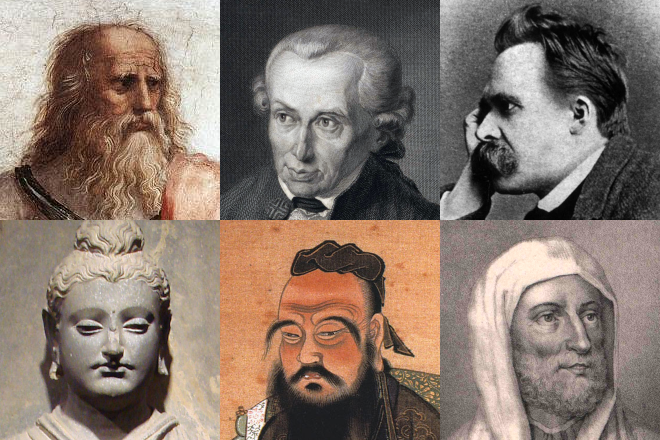Philosophy 101
- Introduction to Philosophy
- Ancient Greek Philosophy
- Renaissance and Enlightenment Philosophy
- Modern Philosophy
- American Philosophy
- Existentialism and Phenomenology
- Analytic Philosophy
- Contemporary and Postmodern Philosophy
- Eastern Philosophy
- Philosophy of Religion
- Philosophy of Science
Ancient Greek Philosophy
Presocratics: The Pioneers of Western Philosophy

Philosophers active before and during the time of Socrates.
The Presocratics, as the name suggests, were the philosophers who predated Socrates. They were the first thinkers in the Western tradition to grapple with the fundamental questions of existence, knowledge, and ethics. This unit will explore the key figures and ideas of Presocratic philosophy.
The Milesian School: Thales, Anaximander, and Anaximenes
The Milesian School, named after the city of Miletus in Ionia (modern-day Turkey), was the first school of philosophy in the Western tradition. Its main figures were Thales, Anaximander, and Anaximenes. Thales is often credited as the first philosopher in the Western tradition. He proposed that water was the fundamental substance of the universe. Anaximander, his student, disagreed and proposed the boundless or the indefinite (apeiron) as the primary substance. Anaximenes, a student of Anaximander, proposed air as the fundamental substance.
Pythagoras and Pythagoreanism
Pythagoras was a philosopher and mathematician who founded a religious community known for its strict rules and secrecy. Pythagoreans believed in the transmigration of souls and the mystical significance of numbers. Pythagoras is best known for the Pythagorean theorem in geometry.
Heraclitus and the Doctrine of Flux
Heraclitus was a philosopher known for his doctrine of flux, which posits that everything is in constant change. His famous aphorism, "No man ever steps in the same river twice," encapsulates this idea. Heraclitus also introduced the concept of Logos, an ordering principle of the universe.
Parmenides and the Concept of Being
Parmenides was a philosopher who argued against the doctrine of change. He proposed that reality is unchanging and indivisible, and that all change is illusory. His philosophy is often seen as a direct response to Heraclitus.
Empedocles and the Four Elements
Empedocles was a philosopher who proposed that all matter is composed of four elements: earth, air, fire, and water. He also introduced the forces of Love and Strife as the causes of combination and separation among the elements.
Anaxagoras and the Mind (Nous)
Anaxagoras was a philosopher who proposed that everything is infinitely divisible and that even the smallest particle contains a portion of every element. He introduced the concept of Nous (Mind) as the ordering principle of the cosmos.
The Atomists: Leucippus and Democritus
Leucippus and Democritus were philosophers who proposed that the universe is composed of tiny, indivisible particles called atoms (from the Greek atomos, meaning "uncuttable"). They argued that changes in the world are due to the rearrangement of these atoms.
In conclusion, the Presocratics laid the groundwork for all subsequent Western philosophy. They were the first to use reason and argument to explore the fundamental questions of existence, and their ideas continue to influence philosophical thought to this day.